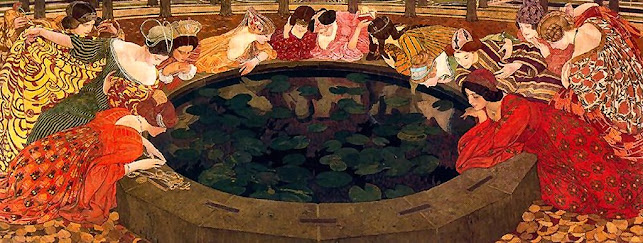Why do we teach History? History, Education and Roleplaying
Why do we teach history? This question may seem obvious but in light of recent scaling back of history and humanities programs it bears consideration. Others have answered this question more deeply but I will provide a few reasons of my own before discussing how roleplaying fits in.
History helps us understand where we came from and why things are the way are now. These origin stories help give context to our understanding of modern life. The origin of history is basically just memory and stories.
History teaches cause and effect, or at least provides data on correlations. We can look at how all sort of historical events have panned out over time and use that information to help inform our decisions about the future. History as an academic subject stems from this 'leadership training' approach.
History trains us to decide what is true and what is important. Every historian, student or even reader of history must make decisions about what to include or exclude and how much relative weight and truth value to accord to facts and evidence. In order to make any sense of the world we must necessarily limit and prioritize the vast amounts of information available.
These three aspects of history combine to help us update our models of the world. In a very real sense the most important history is the history that exists in our own minds not because it is most accurate, but precisely because it represents our understanding of the world.
History trains a specific kind of reasoning, sometimes referred to as historical reasoning. It is a kind of thought which requires that we use our logic and our imperfect knowledge of the past to guess at what happened, why it happened and how. The reason that history is so useful is that historical reasoning is very much like a mirror image of prospection, or the idea of using our logic and world model to anticipate future events.
Prospection is one of the most important skills we can have; it might be the defining feature of higher intelligence. We use it every day, imagining how our interactions will go, looking ahead to see the possible consequences of our actions. Though we practice prospection constantly history can provide situations and perspectives far beyond our own personal experience to inform our models. History also supplies an objective data set from which to draw conclusions1. The imperfect historical evidence from which we must work is, if anything, a good facsimile of what we must do in order to predict the future.
Given that historical education exists in part to train decisionmaking skills, I think we can do more for students than present narratives or lists of facts. History educators should emphasize historical reasoning by including roleplaying into the curriculum. By roleplaying I do not simply mean playing a character but putting students into situations similar to real, historical circumstances and forcing them to choose what to do.
- The teacher could present situations using the best information we have about a given period
- Students take on the role of a historical person faced with a critical choice or series of choices (these might be real historical figures or a composite sketch)
- Explore the possible consequences of student choices (either narratively, using some sort of random mechanism, or by comparing real accounts of people in similar situations who made similar choices).2
Second, student may approach weighty and important historical events with something less than reverence and due respect. Given that we can preserve some amount of basic empathy, our goal as teachers should be to get students to engage with history by reasoning with their actual, non-historical, minds. It should feel weird and foreign to approach these topics and students should be expected to have a singular 'appropriate' response.
Finally, roleplaying sounds like a game and it can be a game and it certainly does not appear similar to typical ideas of history teaching in schools. I don't think it should replace learning historical facts (which are vital), but I do think that roleplaying helps to directly train the kinds of reasoning we want students to develop. This isn't ancillary to the subject, it opens entirely new ways of apprenhending history. Worth a try at least.
Footnotes
1. Although written history is inevitably subjective to some degree, I would assert that its basic goals are to derive insights about the objective past.
2. Depending on the level of students and the robustness of roleplaying activity, students could even be tasked with playing the role of facilitator, describing historical situations for their peers and determining results.




Comments
Post a Comment